Buenos Aires Quotes
Quotes tagged as "buenos-aires"
Showing 1-21 of 21
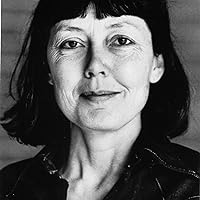
“Somehow Geryon made it to adolescence. Then he met Herakles and the kingdoms of his life all shifted down a few notches. ... Geryon was going into the Bus Depot one Friday night about three a.m. to get change to call home. Herakles stepped oof the bus from New Mexico and Geryon came fast around the corner of the platform and there it was one of those moments that is the opposite of blindness. The world poured back and forth between their eyes once or twice.”
― Autobiography of Red
― Autobiography of Red
“When asked about the survey, Buenos Aires's mayor, Mauricio Macri, dismissed it as inaccurate and proceeded to explain why women couldn't possibly have a problem with being shouted at by strangers. "All women like to be told compliments," he said. "Those who say they're offended are lying. Even though you'll say something rude, like 'What a cute ass you have'...it's all good. There is nothing more beautiful than the beauty of women, right? It's almost the reason that men breathe." To be clear, this is the mayor. Upon reading this quote, I investigated, and can confirm that at the time of this interview he was not wearing one of those helmets that holds beers and has straws that go into your mouth.”
― Modern Romance
― Modern Romance
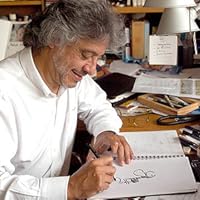
“Más que ilustre, me siento ilustrador
Dicho al recibir el título de Ciudadano Ilustre de la ciudad de Buenos Aires, el 10 de marzo de 2009.”
― Los buenos oficios de Caloi
Dicho al recibir el título de Ciudadano Ilustre de la ciudad de Buenos Aires, el 10 de marzo de 2009.”
― Los buenos oficios de Caloi
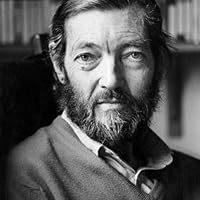
“En París todo le era Buenos Aires y viceversa; en lo más ahincado del amor padecía y acataba la pérdida y el olvido.”
― Hopscotch
― Hopscotch
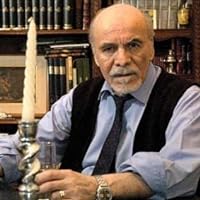
“Soy sencillamente, o tal vez debo escribir que fui, un hombre solitario. Puedo pasarme la noche entera frente a un pocillo de café, y si a veces condesciendo a pedir una copita de caña de durazno o un cognac es para no despreciar a mis ocasionales compañeros de mesa. Para que no desconfíen de mí; para que me hablen. He conversado en esos bares con los personajes más extraordinarios de Buenos Aires. Actores fracasados, ex presidiarios, viejas putas en decadencia, infantiles putas en ascenso, poetas que se creían, o quizá eran, genios incomprendidos, tristes homosexuales que venían de una paliza descomunal, violeteras que juraban haber cantado con la Galli Curci o haber sido amantes de Perón.”
― El espejo que tiembla
― El espejo que tiembla

“I had to live my life, and to do that I needed to go to Buenos Aires. I had to live my life, and to do that I needed to go to Buenos Aires.”
― Agosto
― Agosto

“«Oh, inmortales, el grito sagrado…», de lo que concluí que ser argentino era una forma de inmortalidad.”
― La ciudad invencible
― La ciudad invencible

“Buenos Aires era una ciudad sorprendente. Parecía hecha con pedazos de ciudades de todo el mundo y las había amalgamado de manera mágica entre callejuelas, avenidas y edificios de porte señorial.”
― Heredera de dragones
― Heredera de dragones

“Visto desde afuera, Buenos Aires parecía una jungla colmada de animales salvajes que competían ferozmente por lograr sus objetivos personales, por alcanzar una presa.”
― BlackJack (3241)
― BlackJack (3241)

“La literatura de Buenos Aires siempre sucede en otra parte, se está escribiendo en otros barrios, quién sabe cuáles, en los piquetes, en las fruterías de los paraguayos, en los apagones, mientras la comida de Navidad se pudre, huele la carne, corren los chinos a comprar bolsas de hielo para no perder la leche y las patys congeladas.”
― La ciudad invencible
― La ciudad invencible

“This curve in the river, a stone’s throw from one of the biggest tourist draws in the city, was worth cleaning, but the catamarans didn’t go further upstream to where faecal matter from the barrios and heavy metals from industry were plentiful. The funds to clean up that crap had been embezzled, or so they said. If the river was ever cleaned, journalists would miss using it as a symbol for corruption in the city.”
― Buenos Aires Triad
― Buenos Aires Triad

“He was twelve hundred down. This was
against the odds, true bad luck, and then it occurred to him the fights could be rigged. He hadn’t been paying attention to the politicians. Were they winning? Could they be ring-ins: invertebrates betting on invertebrates? He wanted to bust their faces, but willed himself to walk out the door. The invertebrates, sooner or later, always won.”
― Buenos Aires Triad
against the odds, true bad luck, and then it occurred to him the fights could be rigged. He hadn’t been paying attention to the politicians. Were they winning? Could they be ring-ins: invertebrates betting on invertebrates? He wanted to bust their faces, but willed himself to walk out the door. The invertebrates, sooner or later, always won.”
― Buenos Aires Triad

“The architecture reflected a long-gone age of aristocratic prosperity. Perhaps it would be an idea to knock these buildings down to dismiss thoughts of such living. People wanted to believe the current government had cast them out of heaven. In reality, the last twenty governments were to blame.”
― Buenos Aires Triad
― Buenos Aires Triad

“Alguien dijo una vez, no sé quién, que el SIDA es como la guerra, son los padres los que despiden a sus hijos.”
― Los ojos del perro siberiano
― Los ojos del perro siberiano
“I persist until you conjure more images that work their way into my dreams, just as the music had seeped through the cracks of sorrow and oppression in the walls of the conventillos, the tenement houses full of people who had left their countries and taken the long journey to Argentina, looking for a dream. El tango – music born of pain, desire, and longing for what had been left behind.”
― At Half-Light: A Story of Tango and Memory
― At Half-Light: A Story of Tango and Memory
“It was barely spring in the southern hemisphere, and Buenos Aires was not yet soft, or sumptuous, or purple.*
*I wasn't sure what this meant at first, but when I asked this author to explain it, she sent me a picture of a city that resembled a cross between Little Rock and Paris awash in jacaranda blooms”
― The Extinction of Irena Rey
*I wasn't sure what this meant at first, but when I asked this author to explain it, she sent me a picture of a city that resembled a cross between Little Rock and Paris awash in jacaranda blooms”
― The Extinction of Irena Rey
“The glare of the green landscape and the air, the air that was everywhere, in us and making way for us, and we rode and were aware only of each other and ourselves for those couple of miles, and for those couple of miles I was myself, back in the neighborhood of Chacarita, where I moved with my mom after we realized my dad was never going to move out first, that we would have to leave him, and I saw on either side of me the big ugly high-rises and squat goldenrod houses and fuchsia and blue and inscrutable notes scrawled on the walls, graffiti intermingling with the shimmering, shadowing little leaves of the tipas, and as I rode I slowed at the oleander at Facultad de Medicina, those delicate pink flowers that rose over the fence in utter opulence and the lush stiff leaves that reached out through the bars that were freshly painted bright green.
Then there it was: the Great Mamamushi.
I slowed, and Freddie slowed. We parked our bikes. I was out of breath and all the air on Earth was in my blood, and we kissed again, and I turned around, and he put his arms around my waist, and I leaned into him, and we beheld it: a tree that was almost too much to be true, that truly was incredible, with its trunk that was almost eight meters around, a staggering circumference, glittered over by dragonflies, heavy, petite, iridescent incarnations of Irena's genius, when suddenly a flock of impossible parrots exploded out of the alders, and we looked up to see them shattering the sky.
"All the oaks on this trail have their own names," I explained to Freddie. "This one is my favorite. Can you believe it's still growing?"
He put his face against mine. He didn't say anything. For a while we just stood like that, together, watching the Great Mamamushi grow.”
― The Extinction of Irena Rey
Then there it was: the Great Mamamushi.
I slowed, and Freddie slowed. We parked our bikes. I was out of breath and all the air on Earth was in my blood, and we kissed again, and I turned around, and he put his arms around my waist, and I leaned into him, and we beheld it: a tree that was almost too much to be true, that truly was incredible, with its trunk that was almost eight meters around, a staggering circumference, glittered over by dragonflies, heavy, petite, iridescent incarnations of Irena's genius, when suddenly a flock of impossible parrots exploded out of the alders, and we looked up to see them shattering the sky.
"All the oaks on this trail have their own names," I explained to Freddie. "This one is my favorite. Can you believe it's still growing?"
He put his face against mine. He didn't say anything. For a while we just stood like that, together, watching the Great Mamamushi grow.”
― The Extinction of Irena Rey

“A sky full of possibilities, sealed by nightfall, encased the wonder of the city’s eternal soul. Like a mirror to the stars, the city’s glow accented the brilliance of this human masterpiece. The carriage travelers fell victim to the splendor and elegance of Buenos Aires, entranced by its singular beauty.”
― The Sailor & The Porteña
― The Sailor & The Porteña
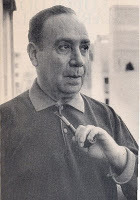
“Templada y riente (como lo son las del otoño en la muy graciosa ciudad de Buenos Aires) resplandecía la mañana de aquel veintiocho de abril: las diez acababan de sonar en los relojes, y a esa hora, despierta y gesticulante bajo el sol mañanero, la Gran Capital del Sur era una mazorca de hombres que se disputaban a gritos la posesión del día y de la tierra.”
― Adán Buenosayres
― Adán Buenosayres
“Home is not a country, or a building, home is your energy that you take when you detach from your body”
―
―
All Quotes
|
My Quotes
|
Add A Quote
Browse By Tag
- Love Quotes 99k
- Life Quotes 78k
- Inspirational Quotes 74.5k
- Humor Quotes 43.5k
- Philosophy Quotes 30.5k
- Inspirational Quotes Quotes 28k
- God Quotes 26.5k
- Truth Quotes 24k
- Wisdom Quotes 24k
- Romance Quotes 23.5k
- Poetry Quotes 22.5k
- Life Lessons Quotes 21.5k
- Death Quotes 20k
- Quotes Quotes 19.5k
- Happiness Quotes 19k
- Hope Quotes 18k
- Faith Quotes 18k
- Inspiration Quotes 17k
- Spirituality Quotes 15.5k
- Motivational Quotes 15k
- Religion Quotes 15k
- Relationships Quotes 15k
- Life Quotes Quotes 15k
- Writing Quotes 14.5k
- Love Quotes Quotes 14.5k
- Success Quotes 13.5k
- Motivation Quotes 13k
- Time Quotes 12.5k
- Science Quotes 12k
- Motivational Quotes Quotes 11.5k

